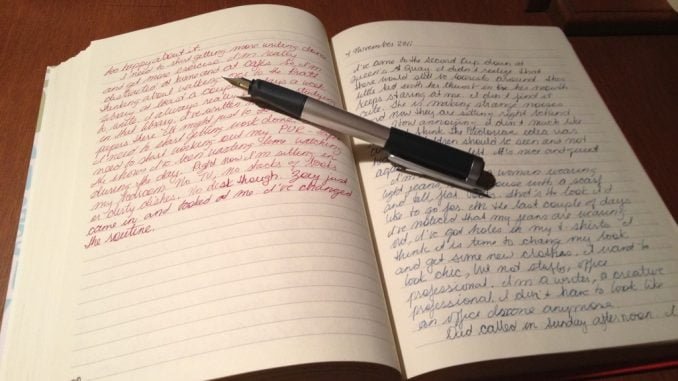
Kampala, Uganda | URN | Harriet Anena, a journalist and writer who authored an anthology, “A Nation in Labor” in 2015, does not know how many books she has sold since its publication because, she did self-publication, secondly, Ugandan bookstores and sellers are “dishonest.”
Anena’s book depicts a giant politician, the restless citizen, the clueless youth, those struggling to heal from life’s scratches and the ones hunting for words to describe fiery flames of affection.
Anena has sold the book through various gatherings, taken them to book stores and also won the 2018 Wole Soyinka prize for Literature in Africa. However, she reveals that majority of bookstores and booksellers in Uganda are either very dishonest or pay very late.
She cited a bookshop in one of the Universities that got her books in 2015 and sold them in weeks, but paid her three years later after she threatened to sue them.
Anena says that she has not got money from copies of her book taken by individuals, literary organizations and bookstores in Kenya and Nigeria. The only benefit she prides about the book is the fact that it won an award, and that it is being taught in two Universities in the U.S. The money she says is not tangible.
Anena says some authors have been forced to spy on book stores to find out if their books are still available and often times, the books have sold out yet when the author goes to get their money, they will be told the books are still on the shelves and store. Sadly, these same bookstores pay foreign authors upfront.
Several Ugandan authors are facing similar or even worse challenges such as having copies of their books printed by publishers and sold behind their back.
Evelyn Kimong, a poet in Northern Uganda who released her debut anthology in August 2020, says her publisher gave her unfair terms such as co-owning her copyright, and asking for 50 percent from the sale of her books if they sold them on online stores.
After rejecting these terms, Kimong says her publisher printed copies of her book behind her back, and when she confronted them, she was dared to provide proof.
Peter Kagayi, a Ugandan poet, lawyer and teacher who has authored four books says he faced the challenge of non-payment by his publisher for four years.
Kagayi who in 2016 authored a poetry collection, “The Headline That Morning” a book that takes the reader on an excursion through questions of love, disillusionment, and politics says he grew up seeing his late father struggle to get paid for his books.
Because of these challenges, Kagayi decided to establish his own publishing company known as Kitara Nation during the lockdown where he now handles his writing business from the point of writing to selling.
Last month, Mugabi Byenkya, a writer and poet launched a Twitter campaign naming and shaming Ugandan bookshops that have failed to pay him years after supplying his debut poetry collection, Dear Philomena.
Bernard Sabiiti, the writer of Uglish: A dictionary of Ugandan English responded to the tweet saying, “… not been keen on ordering another print runoff my book, despite it selling out four years ago because of poor payment by booksellers. It’s not worth it.”
While Harriet Anena responded that; “Next time you walk into your favourite bookstore and don’t find a Nation in Labor, know they’ve been cancelled. Still scratching my head for a lasting solution.”
Read Also: Kony’s ‘wife’ writes book on life in captivity
Hilda Twongyeirwe, the Executive Director of Femrite, a non-government organization founded in 2015 with the aim of promoting female writers and creating space for them to write says Uganda lacks a clear structure through which the book business can smoothly flourish.
Most times, authors market and sell their own books which Twongyeirwe says is wrong, as writers might not have the skills needed to market their books.
She suggests that there is a need for authors to come together and form a clear structure that gives the writers time to concentrate on perfecting their writing craft, instead of running around selling their books or chasing debtors.



